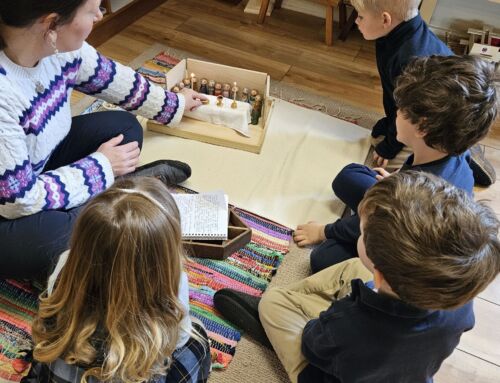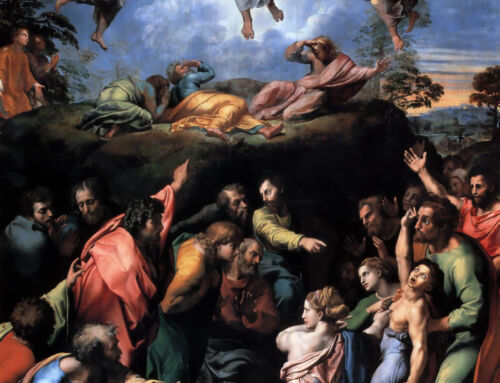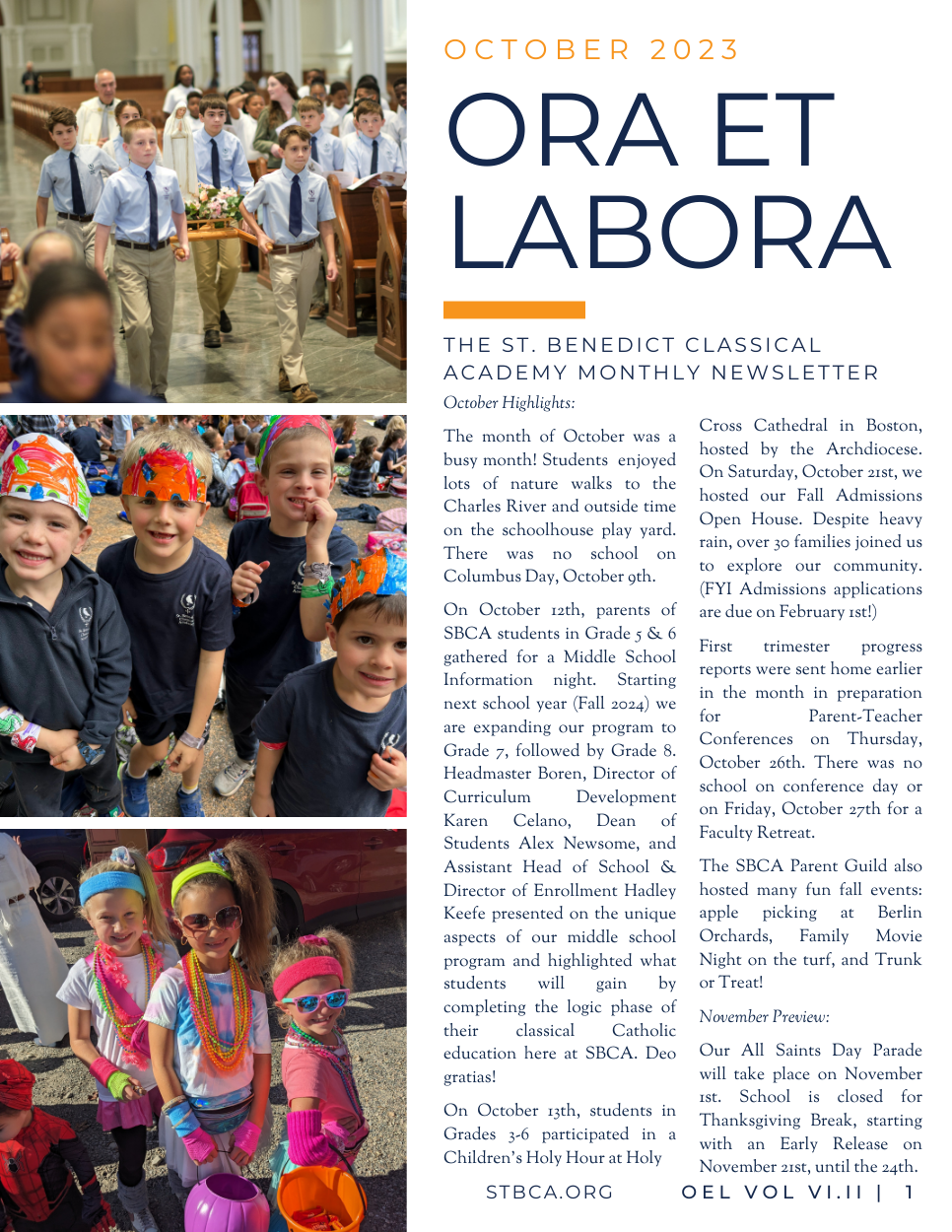Last week, I was walking up the hill to a little shrine behind our school with some of the younger students on a “pilgrimage to Mary.” As I noticed the veiny limbs of trees and the deep hues of red that remain on some of their last leaves, I found myself reflecting on the ways in which certain qualities of the soul can gleam in periods of desolation. It was then that I remembered a short story which has helped me over the months to understand this truth.
It is not easy for us, with our worldly attachments, to understand trials and suffering, or even to earnestly await the end that we seek but cannot see fully. Perhaps that is why I like the story of Griselda, who meets joys as well as toils, suffering, and loss with a heart that is totally divested of itself. Her beauty, like that of Our Lady, comes from her capacity to love without wanting anything for herself but all for Our Lord and those He has entrusted to her care.
Although it is told by Petrarch, Chaucer, and others, I know this story from Boccaccio’s Decameron, which is a collection of tales told by seven noble ladies and three noblemen who have left a plague-ridden Florence where their family and friends have perished for a villa in the countryside. Their two-week stay is well-spent in the doing of chores, the observation of holy days, and the leisurely enjoyment of their time together. They feast, sing, and over wine and late into the evening hours, tell stories and have discussions–my favorite pastimes!
The last of these is the tale of a marquis, Gualtieri, who spends his days hunting and falconing. One day, his faithful vassals beg him to choose a wife with whom he may continue his line, and offer to find for him a woman of high birth and good looks. Gualtieri rejects their offer and chooses for his wife a peasant, named Griselda, whom he has often passed during his trips into town. Despite the flaws in his own character, he sees past her poor clothes and perceives in her a depth of goodness and beauty–what he selfishly regards to be the makings of a wife “suitable to himself,” but little more.
He rides into town, where Griselda and her friends have eagerly gathered along the street with many others to await the arrival of the marquis and his new marchioness. To Griselda’s great surprise, Gualtieri stops at her house–and asks for permission from her father to marry her! He replaces her rags with a beautiful dress, shoes, and crown; and rides with her back to his estate, where she quickly wins the affection of his subjects for her gentleness, grace, and virtuous management of household affairs. But this is not enough for the marquis; still doubtful of Griselda’s capacity to please him and disinterested in exchanging his pastimes for the responsibilities of married life, he decides to put his new wife to the test.
When Griselda gives birth to a daughter, Gualtieri feigns disappointment and orders their little girl to be killed. Later, when Griselda gives birth to a son, Gualtieri tells her that his vassals are upset by the heir’s low birth; with a broken heart, she blesses their boy as he is snatched from her arms and taken to die. Finally, Gualtieri declares that he has petitioned for an annulment so he may marry someone of higher standing. Though this news is a “dagger in her heart,” Griselda remembers that she has come from nothing, and loving Gualtieri so much that she desires nothing for herself and all for him, she sorrowfully but with perfect composure returns to her former life as a herder of cattle. When Gualtieri calls for her to come and make preparations for his new bride, a countess, Griselda calmly accepts the duties of a scullery maid with great nobility of heart, cleaning, cooking, and decorating the banquet hall for a fitting reception for the new marchioness.
When all have gathered for the arrival of the bride and groom, Gualtieri enters with his son and daughter (who have been secretly raised and educated by a relative) and calls their mother, Griselda, to his side as his wife. As she is dressed in splendid robes, crowned, and presented as a great “lady, which she had looked even in her rags,” Gualtieri’s scheme is put to light, and Griselda cries tears of joy. All are able to see in his bride’s patient strength a willingness to undergo all kinds of trials for total love of the other. “Who but Griselda could have endured with a face not only tearless but cheerful, the stern and unheard-of tests imposed on her by Gualtieri?” remarks Dioneo, the teller of the tale. It is through long suffering that Griselda’s noble character and capacity for love is revealed, and it is because of her love for Gualtieri that he–hopefully!–is redeemed.
Through “Patient Griselda,” (as well as the examples of many parents and teachers I’ve seen at SBCA!) I’ve learned to see beauty in the acceptance of duties, trials, and even afflictions that God, quite unlike Gualtieri, lovingly permits for our sanctification. I don’t know how (yet!), but I really do hope that “for a little time made sorrowful in divers temptations,” the trials of our faith, which we undergo daily, will free our hearts from the love of self so they can love truly, and feel perfect joy in “the appearing of Jesus Christ.”
AUTHOR: Jacquelyn Oster, Latin Teacher and Pre-Kindergarten Assistant Teacher








